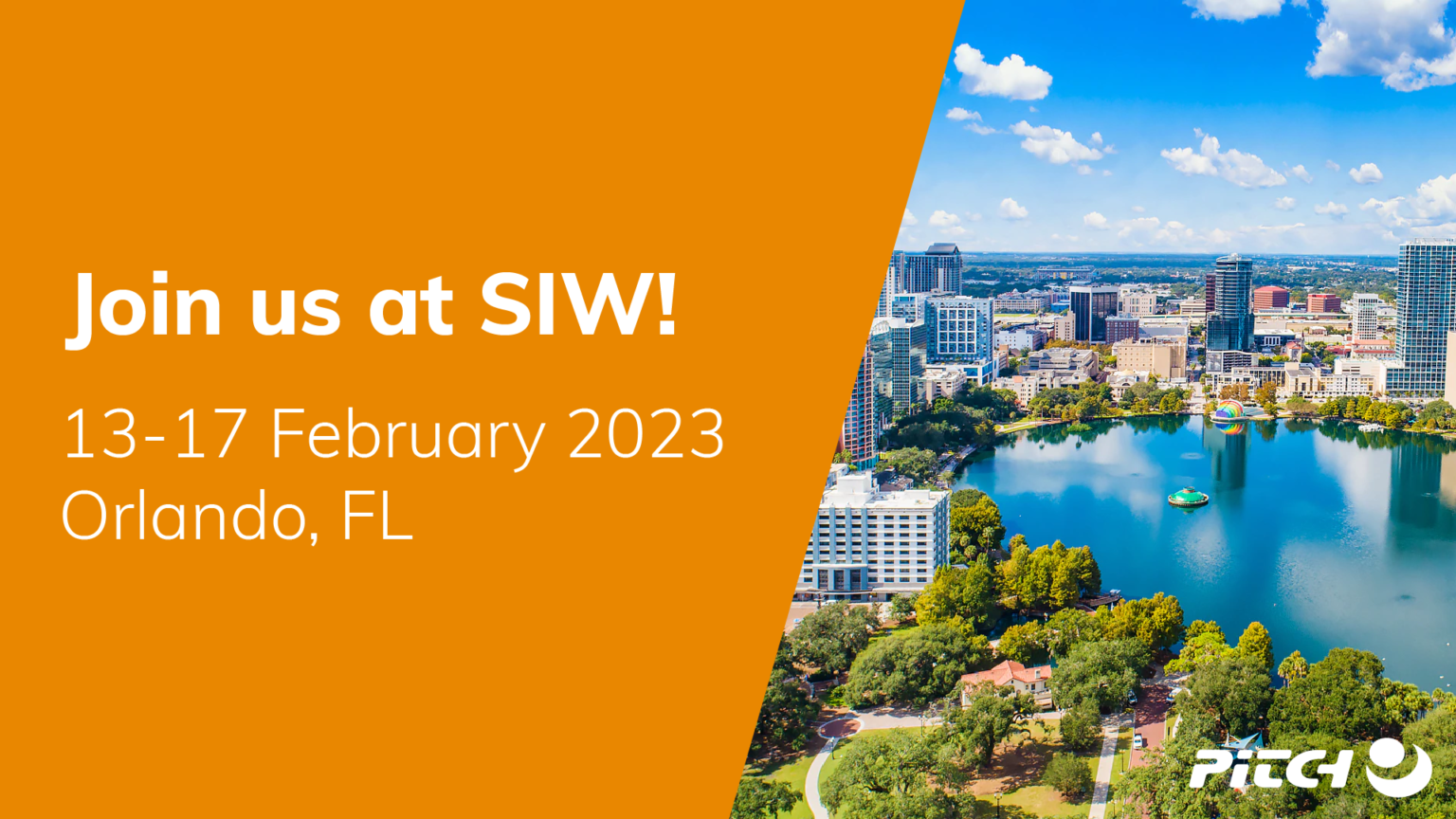The Simulation Innovation Workshop (SIW) is an annual event focusing on development of standards and protocols within the field of simulation. As in recent years, the 2023 SIW takes place in Orlando, FL, hosted by SISO, the Simulation Interoperability Standards Organization. The 2023 SIW will include about 30 papers and presentations in various areas of simulation specialties, numerous guest speakers and panel sessions, a full slate of tutorials, and, of course, numerous working group meetings.
Standards development takes time and effort, as evidenced by the work of SISO committees and annual SIW conferences where much standardization work is done. At Pitch, we view standards as key in freeing users’ time and resources so they can concentrate on cutting-edge simulation content – rather than reinventing the wheel.
To stay relevant, all standards need to evolve. The only way to make that happen is by investing in R&D that explores new solutions and proposes ways for how new concepts and ideas can be incorporated into the standards themselves.
As a long time committed member to the M&S standards community, Pitch has and will continue to invest significant time and resources, especially in the HLA standard and FOM development. By doing so, we contribute to a future where cooperation and interoperability remain key in our customers’ successes. During SIW 2023, Pitch contribution will be shown through the presentation of 3 R&D papers and 3 hosted tutorials.
Papers
Interoperability Between Game Engines
The use of game engines in training and simulation is becoming more popular and widely used. The paper “Achieving interoperability between gaming engines by utilizing open simulation standards” authored by Garratt Weblin at Pitch UK, in partnership with Brunel University London, explores combining the Unity game engine with HLA to show interoperability between different game engines and existing simulation systems.
Migrating to RPR FOM 3
RPR FOM 3, a new version of the most widely used Federation Object Model for aerospace and defense is soon to be released. The paper “Overview and Migration Advice for the New RPR FOM 3”, authored by Björn Möller at Pitch, together with other members of the development group, provides an update of all the new features. It also provides a lot of useful information on how to migrate to the new versions.
A Proposed Extension to the NATO FOM
In the NATO FOM there is no way to publish entity task states. It is managed internally in each federate executing a task. This prohibits saving and restoring the task state in a federation. In recent exercises, the need to reinitialize federates while keeping the task state has been identified. The paper “Extending the NATO FOM for Distributed Synthetic Training to support reinitialization of unit tasking”, authored by Karl Söderbäck, Oscar Bergman and Björn Löfstrand, proposes updates to the NATO FOM as well as design patterns and federation agreements to support centralized backup and restore of task states in the federation.
Tutorials
HLA 4 tutorial
In this tutorial Björn Möller will give participants an update on the most recent advances in HLA object modeling, services, scalability, security, and deployment. The tutorial covers principles and process for developing Federation Object Models, how to extend Federation Object Models using new HLA Evolved and HLA 4 features, and the new HLA 4 services. The tutorial is suitable for anyone with general knowledge about the purpose and principles of HLA. Some experience with HLA object model development is useful.
SpaceFOM 101
In this tutorial Björn Möller from Pitch and Zack Crues from NASA will introduce the recently approved SISO Space Reference FOM (“SpaceFOM”). The purpose of the SpaceFOM is to facilitate a priori interoperability and reuse for space simulations. It makes it possible to compose federations consisting of simulations from one or several different organizations. It is an open, international standard, freely available from SISO. The tutorial will cover key concepts, discusses practical use cases, how to implement and extend the FOM, and some currently available tools for the SpaceFOM.
LVC Simulation Interoperability 101
In this tutorial Damon Curry from Pitch and Kurt Lessman from Trideum will provide managers the necessary insight needed to support intelligent decision making when employing LVC to solve their needs. The tutorial will discuss the various solutions and domains of the technology and how each might potentially support their LVC needs. In addition, the tutorial provides a relevant use case as the mechanism to explain the concepts and the solutions required to achieve success. The tutorial will not be an in-depth technology review of LVC interoperability yet will provide sufficient management-level insight into interoperability solutions and standards like Distributed Interactive Simulation (DIS), High Level Architecture (HLA), and the Test and Training Enabling Architecture (TENA).
To read the full agenda for SIW 2023, visit the SISO event page.

